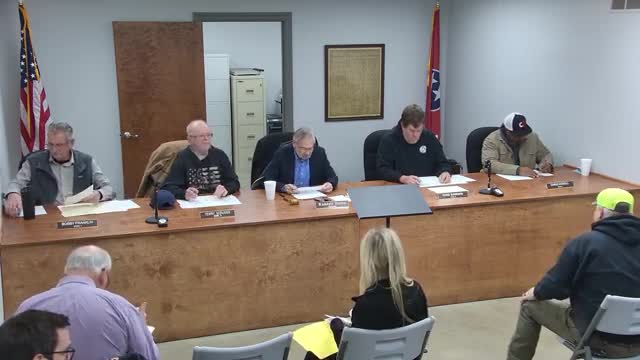Wilson County resident asks to gate dead-end road; county attorney outlines legal hurdles for road closures
Get AI-powered insights, summaries, and transcripts
Subscribe
Summary
A Wilson County resident asked the road commission to abandon the end of a paved road so she can gate it; county staff advised inspection and deed work, and the county attorney explained that state law — not local policy — controls formal road closures, a process that can risk creating landlocked parcels.
Resident Casey Callahan asked the Wilson County Road Commission on Jan. 9 to abandon the end of a paved road off Ferry Stanford Drive so she and her family can gate the road and keep a child and pets safe. "We bought the 4 properties with the red boxes, and we wanted to see if the county could abandon the end of the road there just so we're able to put up a gate," Callahan said, giving her Lebanon address for the record.
The commission and staff discussed immediate, lower-cost options and longer legal procedures. Superintendent Murphy (referred to in the meeting transcript as "Mr. Murphy") told Callahan the county would likely allow a gate where the road ends if the property owners are the last property on the road, but recommended an on-site inspection before any formal determination. County staff also advised the owners that combining the four parcels into a single deed would simplify any abandonment request; Callahan said she already had a survey and that the back lots were likely not buildable and that an existing septic on the front lot had passed inspection.
Later in the meeting the county attorney reviewed the statutory process for formally closing or changing the route of a public county road, noting the county's governing private act from 1961 and that the method and procedure for opening or closing public roads is governed by Tennessee Code. The attorney explained that a petition to close a county road generally triggers a statutory notice procedure, selection of two disinterested persons to join the district commissioner in an advisory fact-finding role and a damages determination; the process can lead to appeals to General Sessions Court and beyond. The attorney warned that formal road closures can create unintended consequences, including making subdivided parcels landlocked.
Commissioners and staff repeatedly emphasized the distinction between putting up a gate at the end of a maintained road (a practical, immediate option discussed in Callahan's case) and legally abandoning or closing a road under state law (a longer, more complicated process). Commissioner Haskell Evans and others advised that gates can be permitted where the county's maintenance ends, while closing a county road requires following Tennessee's statutory procedures and can affect property marketability and future development.
Callahan and staff discussed practical next steps: an on-site inspection by county staff to determine the extent of county maintenance, the potential need to combine parcels or amend deeds to avoid creating landlocked lots, and that abandonment petitions would require additional surveying and recording costs. The attorney concluded by advising caution: while the county can consider requests, formally closing roads is legally complex and may not be in the county's best interest without careful review.
The public-comment exchange on this item occurred during the meeting's public-comment period; subsequent legal explanation took place later on the agenda as part of a general discussion of road-closure law.
